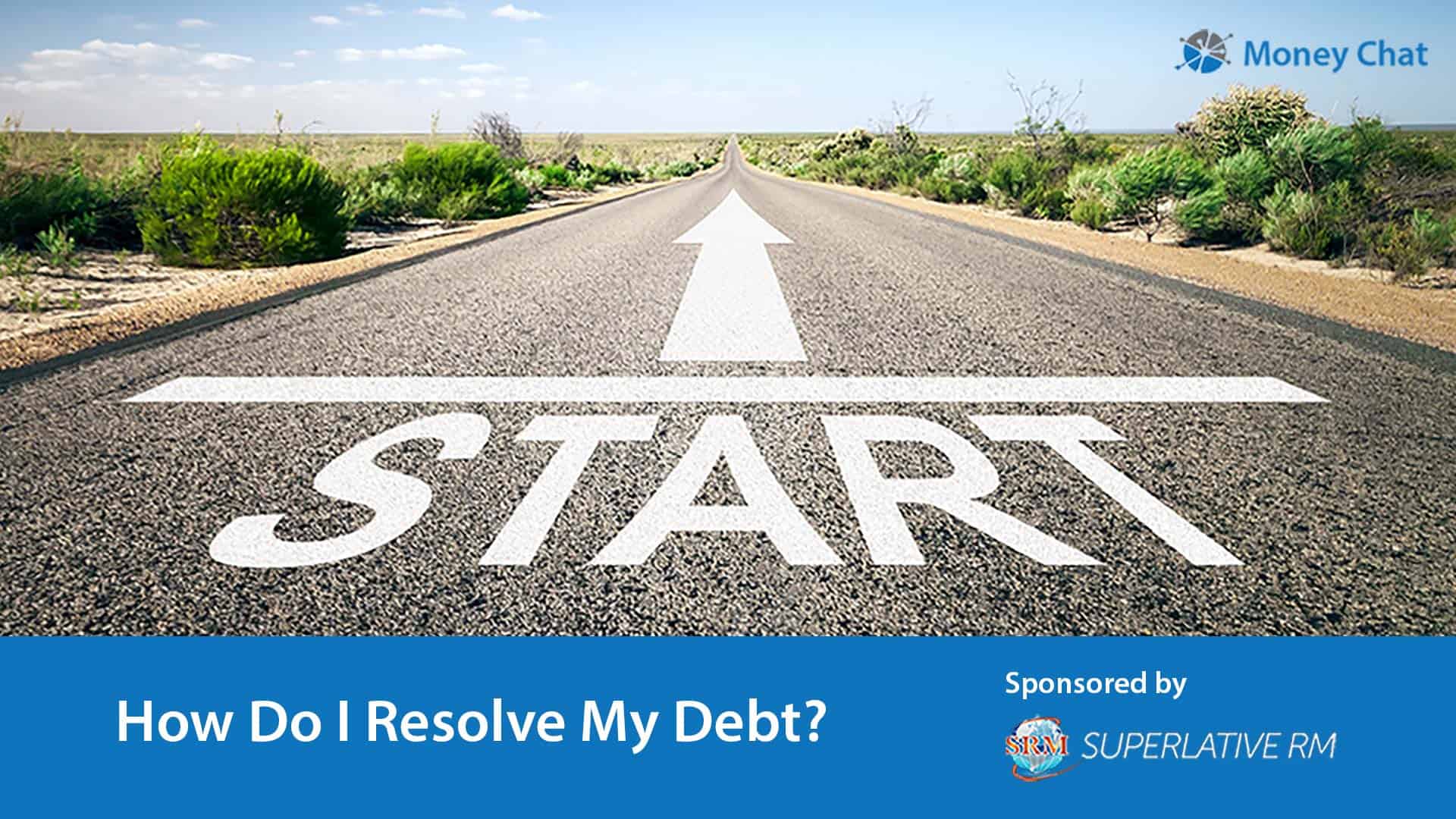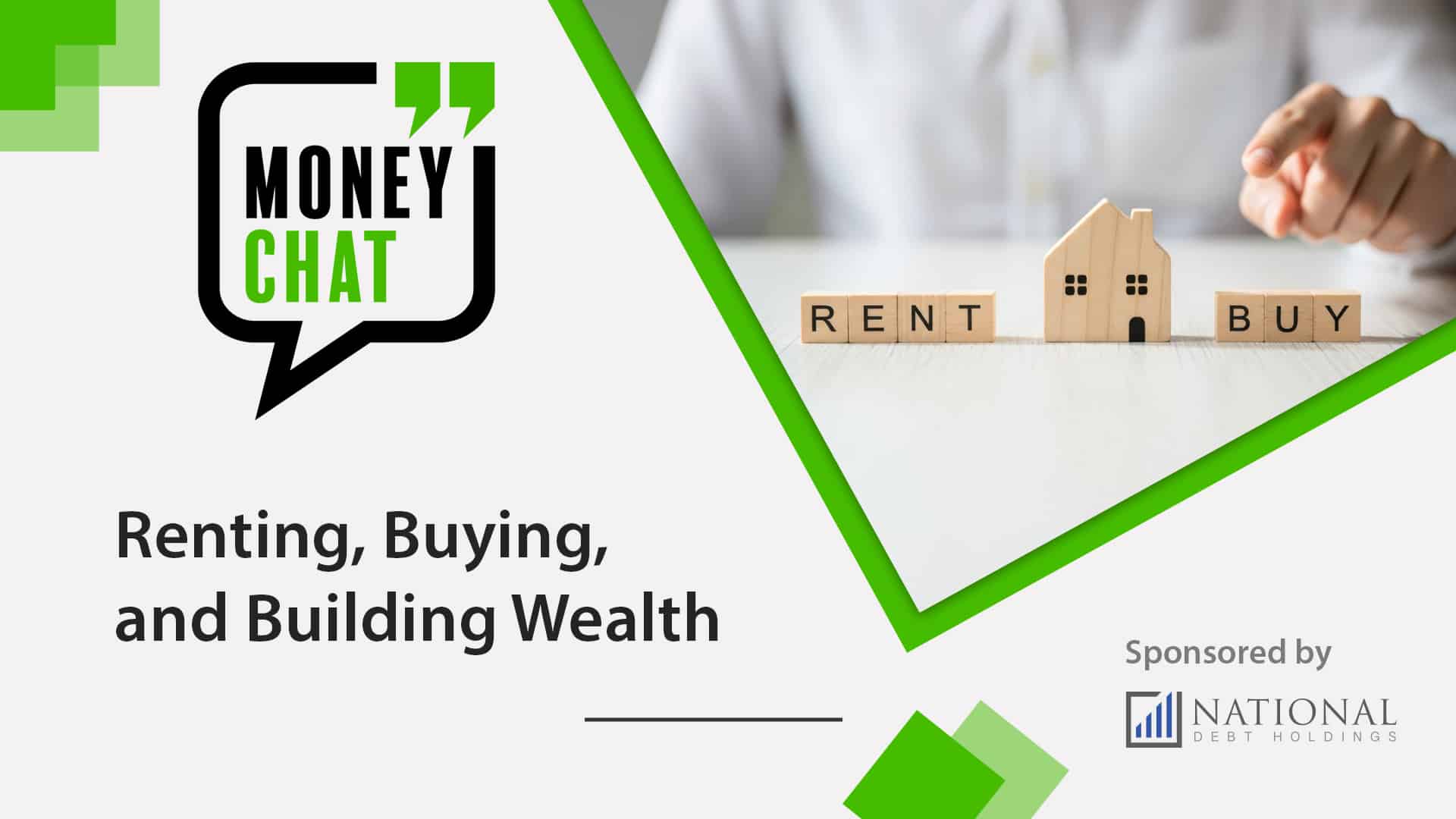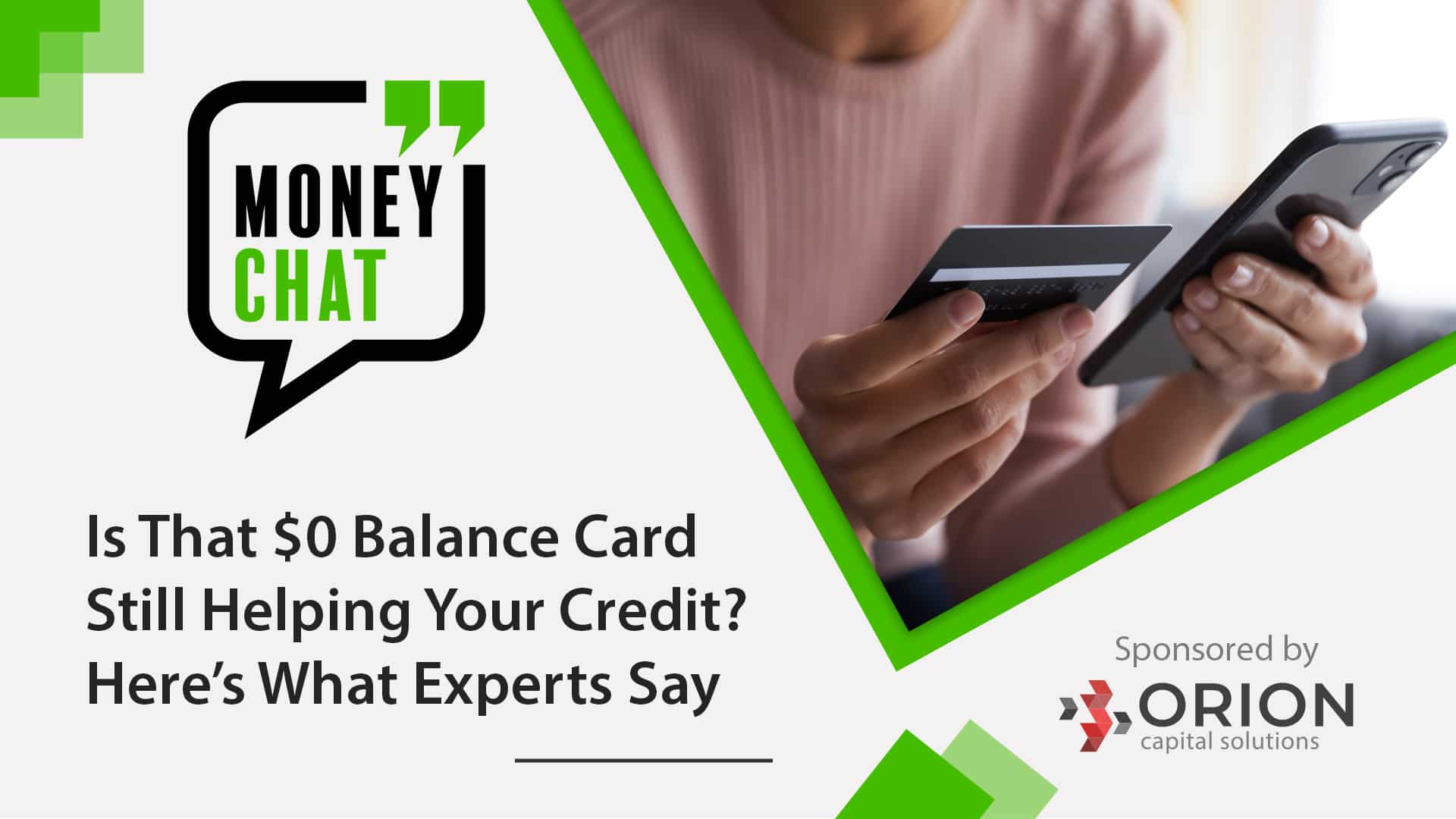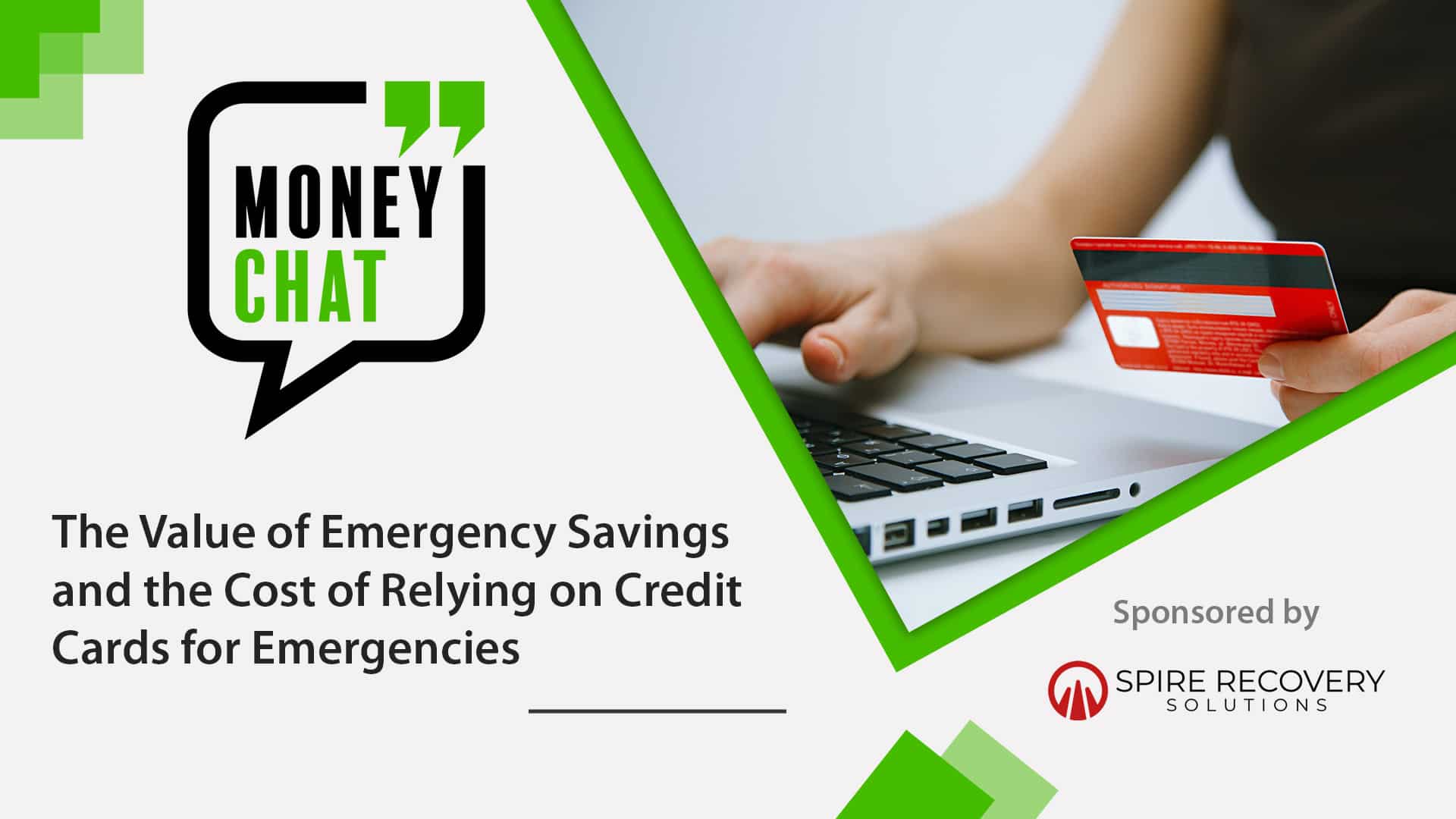
How Do I Resolve My Debt?
Sponsored by Superlative RM
Debt can be stressful and overwhelming. While it may not feel like it, it is possible to resolve and overcome your debt. It can help to first get a clear picture of what you’re facing and where you’re headed, and then develop a plan for getting there. That’s why we’ve outlined these six steps for resolving your debt. So, are you ready to resolve your debt, improve your credit, and take back the driver’s seat of your financial life? With a little focus and determination, you can pave the way toward a stronger financial future and keep moving forward.
The goal of this Money Chat is to empower consumers with knowledge and education for resolving debt. We hope to provide a basic roadmap for the path to debt resolution.
Step 1: Know Who and How Much I Owe
What if I don’t remember the account details or don’t think I am responsible for the debt?
Getting a clear understanding of the account will put you in a better position to discuss a settlement agreement, ask for more information where needed, and maintain accurate records. If you don’t remember the account details or don’t think you are responsible for the debt, a good place to start is by contacting the collector or creditor and requesting Validation of Debt.
What is Validation of Debt?
Validation of Debt is documentation showing the details of the debt. It tells you the “who,” “what,” “when,” “where,” and “how much” of the account. Validation is often sent by mail, so when you request validation, make sure the collector has your current address. Or if you prefer, you might be able to request validation be sent to your email address. See the table below for definitions of details often included in validation of debt, as well as answers to frequently asked questions (FAQs).
Money Chat Quick Reference Guide – Delinquent Debt Definitions and FAQs
| Original Creditor | The company that had originally lent the money, sold the good on credit or provided the service that created the obligation for repayment. |
| Current Creditor | Your account may have been purchased by a debt buyer. This could cause the creditor to change. Debt buyers help original creditors to recover part of their losses caused by non-payment of accounts by selling the account at a discounted rate to the amount owed. |
| Collector | A law firm or collection agency might be managing your account during the collections process. The collector is often who you will work with to make a payment, negotiate a settlement, request validation, or dispute the debt.
FAQ: If my account changes collectors, does that mean it has been sold?If your account changes collectors, this does not necessarily mean it has been sold. Some creditors have in-house collections departments, but collection activity is often outsourced to 3rd party collectors. Accounts may be moved between collection agencies while still being owned by the same company. Collectors are trained in federal compliance regulations and regularly communicate with their clients regarding all account activity. If your account is sold, you will be notified at the address on file, but a change in collectors does not necessarily mean a change in the creditor. |
| Balance | The amount owed. This is the unpaid principal amount plus any accrued interest and/or fees.
FAQ: Why is my balance higher than I remember?
If you have additional questions about the breakdown of balance, the account collector or creditor may be able to provide more details for your specific account. If you believe there is an error, contact your collector or creditor as soon as possible. |
| Account Number | This could refer to the original account number or a current account number assigned by the current creditor and/or collector. These numbers help identify the correct account and avoid confusion, especially if you have more than one account to resolve. |
Account Open Date |
The date the original account was opened. |
Delinquency Date |
The date the original account became late on payments. This date may be included in the validation if the account has not yet been charged off. |
| Charge-Off Date | Sometimes known as Write-Off Date. The date the original creditor “wrote off” or “charged off” the account as an unpaid bad debt, to close the account and move it into the account recovery (collections) process.
FAQ: If my account was already charged off, why do I still owe?A common misconception is that if an account was charged-off, the debt is no longer owed; this is not true. Charge-off refers to the creditor removing the account from their financial balance sheet. The original creditor may still outsource the account for continued collection activity, sue for a judgment, or sell the account to a debt buyer. These are all common methods original creditors use in attempts to recover all or a portion of the loss from accounts. |
| Judgment information | If you were sued and the debt has become a legal judgment against you, Validation of Debt should also include judgment information such as the case number, verdict date, judgment total, defendant/plaintiff names, and court location. |
Step 2: Make My Budget
How Will A Budget Help Me Resolve My Debt?
When you know your budget, you know what kind of payment plan you can afford. Finding the right number for your budget is important. Committing to a payment plan that’s too high for your budget can cause you to default on your debt, sending you back to unresolved debt. Setting up a payment plan too low can cause interest to accrue faster than you pay, causing you to remain stuck in debt.
Some consumers may qualify for hardship consideration or a lower settlement option if financial abilities and obstacles are an issue. Knowing your finances helps both you and your collector/creditor reach a mutually agreeable solution.
What is a Budget and How Do I Start One?
A budget is a tool for keeping track of your money– how much money you have coming in each month and where that money will go. A budget can help you plan ahead so that you control your finances. After bills, groceries, gas, and other necessities, it’s easy to wonder where your paycheck went, even without unexpected expenses. A budget can help you take control of that and start identifying where you can reduce expenses, how much you can save, how much you can spend for big purchases or holiday spending, how much you can pay on any debts, how much you can put aside for emergencies, etc.
Consumer.gov answers basic budgeting questions here to help you get started. There are many free budget resources available for help setting up a budget. Find more by searching “free budget” or browsing these Free Consumer Education Links. There may even be free financial counseling in your area. Check with your local public library or see if your city has free financial counselors available through the Cities for Financial Empowerment Fund.
Step 3: Set Up a Payment Arrangement
Depending on the circumstances, you may have options to set up a payment plan online or by phone. Check the collector’s website for online payment negotiations for more information. If you prefer to speak to someone in person, call the collector or creditor and explain what you’re able to pay. People working in collection agencies and law firms are people like you, working to earn a living. They are there to help you get the debt resolved and are trained in working out payment plans to do so. Approach them with courtesy, and you might be surprised how smoothly the interaction goes.
Your first offer may not be accepted, but you may be able to negotiate a settlement lower than the full balance. This is called a Settlement Agreement or Settlement Arrangement. Settlement arrangements can be paid in monthly payments for a set number of months, a few larger payments, or one lump sum, depending on what works for your budget. Be sure to keep a copy of any settlement agreements for your records, to make sure everything continues smoothly in case the account is moved to a different collector during your payment arrangement.
Step 4: Keep Track of My Payments
Once you’ve reached an agreement, save a copy for your records, and keep records of your payments. If your account was to change collectors during your payment plan, this will help you make sure your payment agreement stays on track. Once your debt is Paid in Full or Settled in Full, you should receive written notice. Keep that for your records as well. If the debt was a judgment, a Satisfaction of Judgment will be filed with the court once when the debt is paid. Once filed, you should receive a copy from the court. Save that as well.
Creditors and collectors use highly specialized software to ensure accurate account records and handle your account with care. Still, as with any type of account, keeping copies of those records for yourself can only help you in case of any confusion or unexpected issue that may arise.
Step 5: Check My Credit Report
The Fair Credit Reporting Act (FCRA) requires each of the nationwide credit reporting companies — Equifax, Experian, and TransUnion — to provide you with a free copy of your credit report, at your request, once every 12 months. You can access your free report with all three credit bureaus on one central website, AnnualCreditReport.com. You can only check once per year for free from each of the three credit bureaus. So you can either check all three at once or space them out.
If any of your debts were being reported on your credit report, it may take a few weeks after resolving them before they are removed. Check Annual Credit Report FAQs for more information on credit reporting and credit repair. Some banks even provide credit scores for their customers at no additional cost. With these tools, you may not need to pay for commercial credit score monitoring services, but those are also available. Just keep caution in mind when it comes to credit repair services (learn more by reading Federal Trade Commission’s article on credit repair).
Step 6: Build Healthy Credit
Once you resolve your debt, you can move forward with more steps in growing your financial health– including building a healthy relationship with your credit. Credit can be an important tool when used carefully. Use the free resources below to learn more about when to use credit and when to avoid it. Then when you need it (for purchasing a car or home, for example), you have the credit score to qualify for a lower interest rate. Small differences in interest rates can save thousands over the lifetime of a loan. The more you resolve your debt, keep a healthy debt-to-income ratio, and pay open accounts on time, the more your credit score improves.
There are many free online resources to help you toward improving your financial fitness. Using these steps and resources as a starting place, you can get started in burying burdensome debt and moving forward. Browse the links below to get started.
Free Consumer Education Links
Consumer Tools by Consumer Financial Protection Bureau
Smart About Money by National Endowment for Financial Education
Consumer Resources by Receivables Management Association International
Projects near you by Cities for FlNANCIAL EMPOWERMENT Fund
Federal Trade Commission: Protecting America’s Consumers
MoneySKILL Resources by Financial Services Association Education Foundation
No Frills Money Skills Video Series by Federal Reserve Bank of St. Louis
360 Degrees of Financial Literacy by American Institute of Certified Public Accountants
Financial Literacy Webinars from Money Smart Week by Federal Reserve
Final Thoughts
The road to financial freedom starts with a plan for resolving your debt. When you have a clear picture of what you’re dealing with and the resources you can use to tackle it, it’s much easier to move forward. Following a plan can help you reduce some of the stress that can be associated with personal finances. With determination to see your plan through, you can clear the obstacles and reach new goals on your financial journey.
Additional Resources
For more information about financial literacy and to access additional consumer financial resources, please visit the Receivables Info Resources Page.
Have an idea for a Money Chat topic?
We want to hear from you! If you have a suggestion for a future Money Chat topic, please email us at [email protected].
Thank you to our Sponsor
This article was sponsored by SuperlativeRM. Founded by a U.S. Marine Corps veteran, Superlative RM is an account receivables management company that works for creditors and debt buyers recovering past due balances from consumers. Our nationally licensed collection agency works with consumers in all 50 states. We constantly strive to improve by leveraging state-of-the-art technology to optimize our customer service experience and bottom-line performance. Our main headquarters is in Elk Grove, CA and we have an additional office in Phoenix, AZ.
The information contained in this article is meant to serve as general guidance for consumers and not meant to serve as comprehensive financial advice. For questions about your individual circumstance, finances, or accounts, please contact your creditor(s) and/or financial advisor directly.







